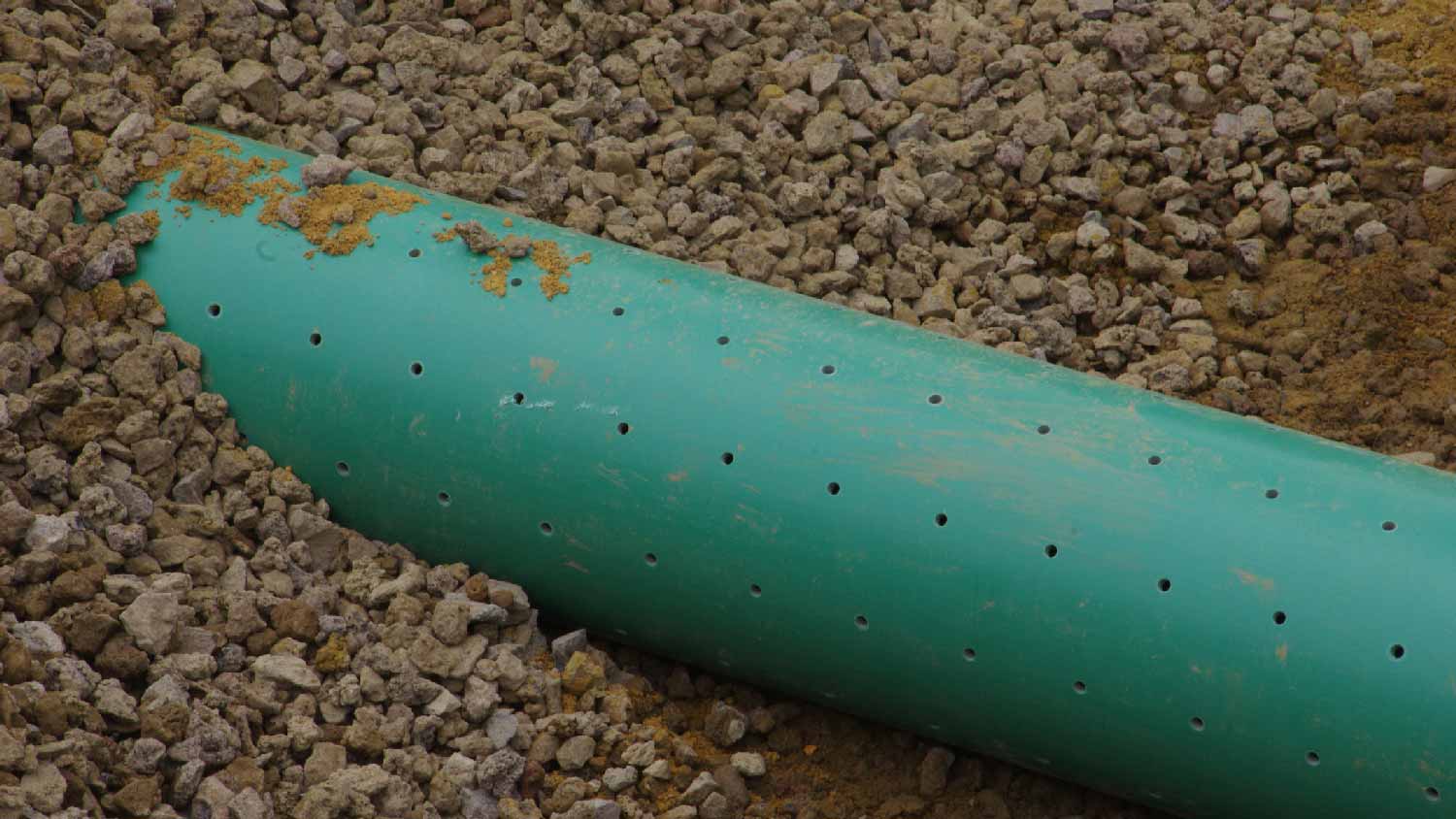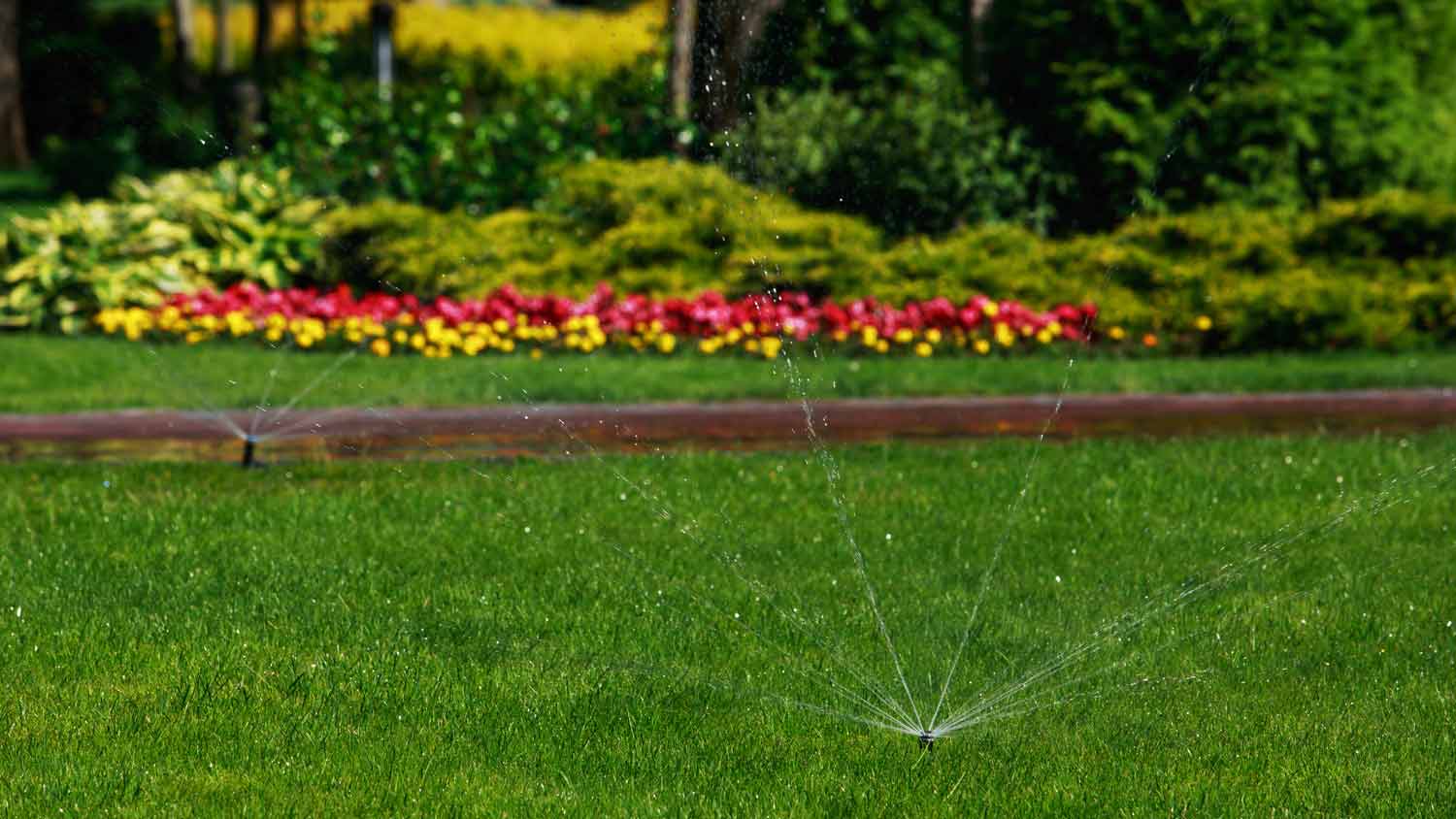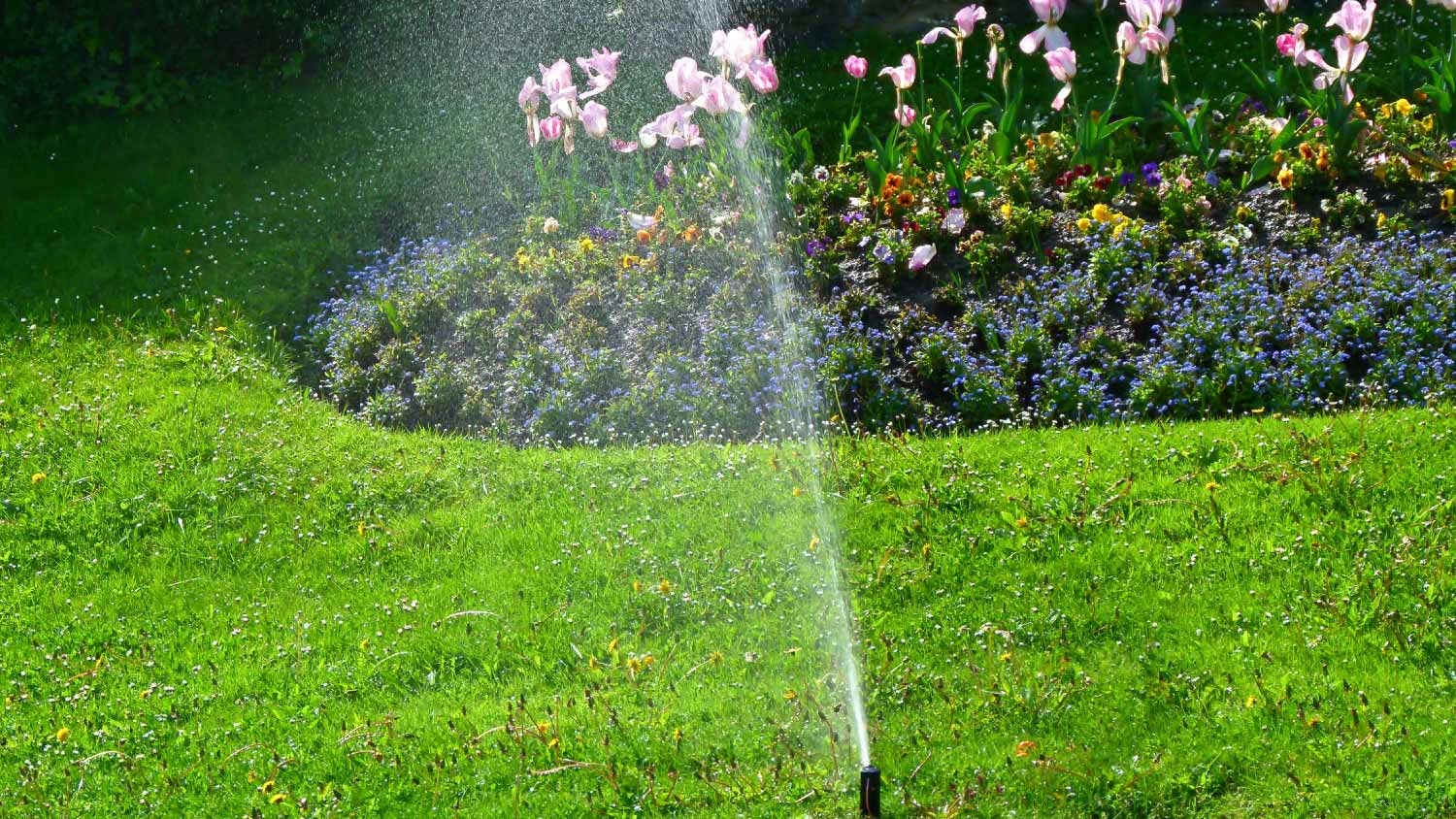Should French Drain Holes Face Up or Down?
Make the right decision for your French drain direction


French drain systems direct excess water away from your property to prevent flooding or water damage.
These drainage systems incorporate perforated pipes that move water toward an exit point.
The direction the perforations should face depends on the type of system and pipe.
Complex systems should have perforations facing up, while half-perforated pipes should face down.
Excess water surrounding your home’s foundation is a cause for concern, which is where a French drain system can save the day. But should French drain holes face up or down?
This type of drainage system uses a perforated pipe that allows extra water to move from one point to the next so that it doesn’t pool. Our guide can help you figure out which positioning works best and when to hire a French drain installer.
A french drain provides a sunken channel for water to disperse into the soil surrounding your home. Installing this type of system requires digging a trench and hooking up pipe connections, among other tasks, so it's best to hire a professional french drain installation company for this project.
Should French Drain Pipes Face Up or Down?

For French drains, the direction the pipe perforations face depends on the use and type of system. No one direction is wrong unless it's being used in a way that would prevent your French drain from working properly.
When Perforations Should Face Up
If you have a more intricate French system that incorporates downspouts and a perimeter drain inside the basement, the perforations in your drain pipe should face up. This direction allows the downspouts to work with streaming water to keep debris and silt from collecting inside the pipe and clogging it.
When Perforations Should Face Down
The drain holes on your pipe should face down if the pipe is half perforated. As water moves through the ground from the top of the slope, the holes allow water to come in from the bottom and flow down to the exit point. Your French drain would still technically work if the holes were facing up, but the water wouldn’t travel as fast so it wouldn’t be as effective.
What Is a French Drain?
A French drain is an outdoor system used to direct water away from your home and down toward an exit point to prevent water damage or flooding. Most French drain systems include a trench filled with rock or gravel, with a perforated pipe for excess water to flow through. Your French drain dimensions depend on the needs of your property, but most systems range from 8 to 24 inches deep, with a four-inch diameter pipe running five to 10 feet.
Can I DIY French Drain Installation?
A French drain provides a sunken channel for water to disperse into the soil surrounding your home. Installing this type of system requires digging a trench and hooking up pipe connections, among other tasks, so it's best to hire a professional French drain installation company near you for this project.
It’s best to get quotes from at least three companies before you lock one down so you have a good idea of the scope of work and the average cost. The cost of installing a French drain system ranges from $500 to $18,000, or $9,250 on average. The total cost depends on yard size, drain size and type, and labor costs.
Frequently Asked Questions
You need gravel underneath a French drain pipe so that it allows the water to seep through the ground and be taken away from the slope of the drain. You should use river rock or granite chips in your French drain installation to accommodate maximum drainage and prevent clogging in the system.
The lifespan of a French drain is 30 to 40 years. However, to achieve the full lifespan of a French drain system, you must maintain it well with regular cleanings, inspections, and repair any damages that might occur over time. Be sure to consult a French drain expert for assistance with annual cleanings and maintenance.
















